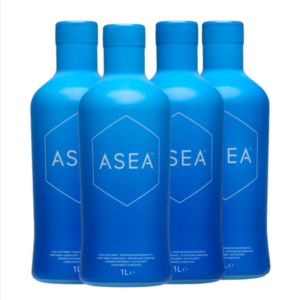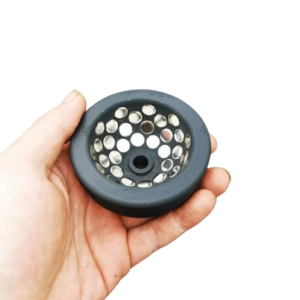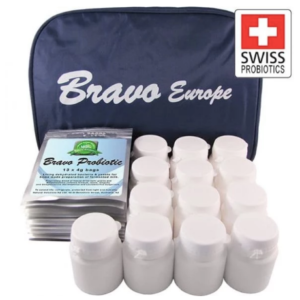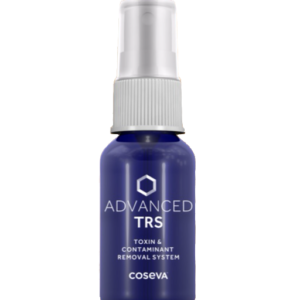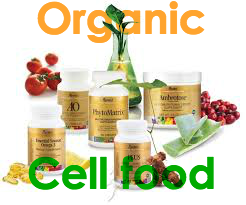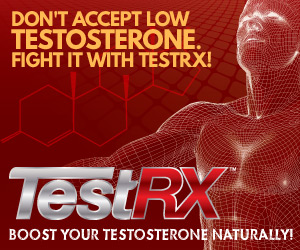HHCP is a rare exotic cannabinoid with powerful psychoactive effects. Many report that the compound feels like THCP, the strongest alternative cannabinoid on the market.
HHCP is a minor cannabinoid produced from the conversion of THCP, another potent minor cannabinoid. Its effects resemble THC, and its chemical structure is similar to HHC.
Laboratories produce HHCP through specialized chemical processes that enhance its stability. This added stability modifies the compound’s interaction with brain receptors, differentiating it from natural cannabinoids like THC.
Specifically, chemists manufacture HHCP by hydrogenating THCP. Hydrogenation is the process of adding hydrogen atoms to a molecule’s structure. These methods produce a compound that mimics THC effects while showcasing unique characteristics.
HHCP vs. HHC: Chemical Differences
In the 1940s, an American chemist discovered he could synthesize THC molecules into HHC by adding hydrogen. As a result, THC and HHC have nearly identical molecular structures. For example, both have five-atom carbon tails. However, where THC has a double carbon bond, HHC has a single carbon bond and a hydrogen
HHCP is like HHC but with two extra carbon atoms on the side chain of the molecule.
Experts think these extra carbons make it easier for HHCP to connect with brain receptors, which makes its effects stronger
Sedation vs. euphoria:
HHC effects lean more toward sedation and relaxation. Most users report a gradual, euphoric high and a smooth, calming experience that is less energetic and more cerebral and other-worldly.
HHCP can be relaxing as well. However, many people describe feeling stronger euphoria with HHC-P than with any other cannabinoid. The effects can be intense but usually uplifting, providing a solid mood boost.
Potency:
Most agree that HHC is slightly less potent than standard THC in its psychoactive effects.
However, HHCP potency is on par with THCP, the most potent minor cannabinoid on the market. According to studies, THCP can bind with cannabinoid receptors in the brain with up to 30 times greater strength than regular THC. HHCP might share this trait.
As a result, HHCP feels significantly more powerful and euphoric than Delta-9 THC, capable of causing an extended period of blissful sedation.
Potential Applications and Benefits
Medical Uses
HHCP’s therapeutic potential could rival Delta-9 THC, such as helping improve mood, sleep, physical discomfort, appetite, and nausea.
Most information about HHCP comes from user reviews, which back up these therapeutic effects. For instance, Binoid has over 500 five-star reviews for HHC-P from customers. Most of them state benefits such as:
- Soothing the body and mind
- Relaxation
- Helping with severe anxiety
- Relief from aches and pain
- Better mood
- Improved sleep
Consumers rave about the euphoria and intense body high they experience with HHC-P. They also love the long-lasting experience. Many other cannabinoid products provide brief euphoria, but HHCP effects last much longer.
Risks and Precautions
HHCP and other minor cannabinoids are generally safe and well-tolerated in mild to moderate doses. However, there are risks and concerns associated with HHCP.
Lack of Research
While Delta-9 THC has been studied extensively, there aren’t many studies available on minor cannabinoids such as HHCP. Anecdotal reports about HHCP are generally positive, but little official research is available to verify its safety or long-term effects.
Does HHCP Research Exist?
HHCP is a newly discovered cannabinoid alternative. Cannabis researchers haven’t had time to fully analyze its potential or publish their findings.
Because HHCP shares many similarities with HHC (both hydrogenated cannabinoids), many point to research on HHC to better understand HHCP’s potential benefits.
- Pain relief: A study on rats in 1977 indicated that HHC might possess pain-relieving properties akin to painkillers.
- Improved sleep: According to a 2007 study, HHC might aid individuals with sleep disorders. It increased sleeping time significantly in rats, with up to an incredible 700% boost.
- Long-lasting effects: A study from 2010 found HHC analogs could bind with CB1 and CB2 receptors in the body with an “exceptionally high in vitro and in vivo potency with a relatively long duration of action.” This HHC study reinforces user reports that HHCP is also incredibly long-lasting, and users will feel the effects from a high dose for a long time.
These HHC studies help shed light on HHCP’s potential effects and mechanisms. However, HHC-P’s two additional carbon atoms mean it is a unique compound, requiring novel scientific research to truly understand it.
Potential Side Effects
Some people report similar side effects to high THC doses when using HHCP. Any adverse outcomes are usually temporary and result from underestimating HHCP’s potency and taking too large of a dose.
Short-term HHCP side effects can include:
- Anxiety
- Confusion
- Difficulty with coordination
- Dry mouth
- Increased heart rate
- Low blood pressure
- Red eyes
- Slower reaction times
- Tiredness
THCP is told to be around 25 times stronger than HHC/THC. In our standard formulation we use 85% CBD distillate, 10% THC-P distillate and 5% terpenes (or flavour, see options below).
Three years ago, Italian scientists discovered THCP by complete accident. They were exploring a medical strain known as FM2 provided by the Military Chemical Pharmaceutical Institute in Florence. To everyone’s surprise, they found a compound that acted on endocannabinoid receptors with incredible efficiency. This minor phytocannabinoid, Delta-9 tetrahydrocannabiphorol (THCP), displayed an even stronger binding ability than Delta-9 THC, the plant’s most abundant and powerful psychoactive agent.
Today, THCP is more than just an intriguing cannabinoid with the potential to rival Delta-9’s effects. It is the latest minor cannabinoid, like Delta-8 and Delta-10, to take the hemp industry by storm. Here we’ll review everything you need to know about THCP effects, products, legality, and laboratory testing.
Until 2019, experts believed THC was cannabis’ most biologically active psychoactive compound. However, once researchers discovered THCP, everything changed. Based on its molecular structure, THCP exhibited 33 times stronger binding affinity to CB1 and CB2 receptors throughout the Endocannabinoid System.
CB1 receptors occur primarily in the brain and nervous system, binding to THC to activate the body’s reward system and regulate functions like sleep, mood, and appetite. CB2 receptors exist primarily in the immune system, regulating key anti-inflammatory processes.
Researchers found that:
- THCP is 33 times more active on CB1 receptors than THC
- THC is 63 times more active on CB1 receptors THCV
On the surface, these findings imply that THCP could be exponentially more psychoactive than THC. However, that’s not exactly the case.
THCP is, in fact, stronger than THC, but it doesn’t mean the effects are 33 times stronger. That’s because there’s a limit to any cannabinoid’s ability to activate endocannabinoid receptors before overloading the system.
At a certain point, the body will eventually experience diminishing returns. Nevertheless, the few people who’ve tried it say THCP felt 5 to 10 times stronger than regular Delta-9 THC.
THCP’s powerful properties make the compound a promising discovery for medical cannabis research and consumer product development.
Since Delta-9 THC is the only federally illicit compound, Delta-9 THCP is technically legal nationwide. Additionally, most manufacturers produce THCP from hemp-derived CBD. Hemp is federally legal as of the 2018 Farm Bill, whose language includes all hemp derivatives and extracts.
THCP Effects
While there is no clinical research behind THCP’S effects, It is advised to proceed cautiously due to the compound’s potent properties.
Users reviewers left comments like:
“The cart is relaxing, and it does help you sleep peacefully. Felt relief from my headaches from them busy days of hard work.”
“Got me zonked. Fell asleep pretty quick.”
“Smooth hit that punches a blow to help you chill out and relax.”
THCP Therapeutic Potential
To be clear, no clinical research exists yet on THCP. However, the team of Italian researchers who discovered THCP conducted an in vivo pharmacological test on human cells.
They found that Δ9-THCP induced similar effects as Δ9-THC at about half the dose.
- Analgesia (pain relief)
- Hypomotility (slowing of movement)
- Catalepsy (trance-like state)
- Decreased rectal temperature
For this reason, the team thinks agricultural genetics research should focus on creating high THCP strains while scientists continue exploring the compound’s medical value.
The Italian research team said: “In our opinion, this compound should be included in the list of the main phytocannabinoids to be determined for a correct evaluation of the pharmacological effect of the cannabis extracts administered to patients.
In fact, we believe that the discovery of an extremely potent THC-like phytocannabinoid may shed light on several pharmacological effects not ascribable solely to Δ9-THC.”
Risks and Precautions
THCP and other minor cannabinoids are generally safe and well-tolerated in mild to moderate doses. However, there are risks and concerns associated with THCP.
Short-term THCP side effects can include:
- Anxiety
- Confusion
- Difficulty with coordination
- Dry mouth
- Increased heart rate
- Low blood pressure
- Red eyes
- Slower reaction times
- Tiredness
HHC is a more-recent entry to the hemp market, HHC belongs to a completely different chemical class known as hexahydrocannabinol.
HHC offers a valuable psychotropic experience, but a less potent one than Delta-9 THC and even less potent than Delta-8.
HHC is also a minor cannabinoid that is considered to be semi-synthetic. However, HHC is not a tetrahydrocannabinol like Delta-8, Delta-9, and Delta-10 THC.
HHC users report a unique gradual, euphoric onset followed by a smooth, calming experience. Many say HHC feels less energetic and more cerebral and other-worldly than Delta-8.
HHC is not a tetrahydrocannabinol, so it doesn’t fall under the Substance I classification like Delta-9 and other forms of THC.
Delta-8 and HHC Safety Issues
Producing Delta-8 and HHC involves solvents, acids, and metals that can be hazardous to workers and end-users if not properly washed from the formula. To prevent these issues, manufacturers must ensure the conversion from CBD to Delta-8 is as clean as possible. HHC processors must start with high-quality Delta-8 and properly wash their products of harmful metals. Ultimately, every brand must verify its end-products quality through full panel testing with a verified third-party laboratory.
Consumers who are concerned about residual chemical issues should only buy from trusted brands that thoroughly test their products and include a verified COA on their labels.
ACS Laboratory’s HHC metals panel tests for lead, palladium, arsenic, mercury, platinum, cadmium, nickel, and zinc.
While HHC is not the same chemical class as Delta-8 or Delta-9 THC, it can also lead to drug test failure.
Summary:
HHC effects lean more toward sedation and relaxation and has some substantive research on . vs HHCP many people describe feeling stronger euphoria with HHC-P than with any other cannabinoid. The effects can be intense but usually uplifting, providing a solid mood boost. There is very little research on HHCP however can be extended from the HHC research vs THCP with no clinical research in effects, It is advised to proceed cautiously due to the compound’s potent properties as it can be 25 times stronger than HHC/THC.
NO LABEL, WHITE LABEL & PRIVATE LABEL SERVICES
With only 50 pieces for No Label and 100 pieces for White Label we have an incredible low MOQ for HHC-P disposables.
Let us know if you have an idea for your own formula. There’s a big chance we can make it! The MOQ for Private Label is only 250 pieces.
